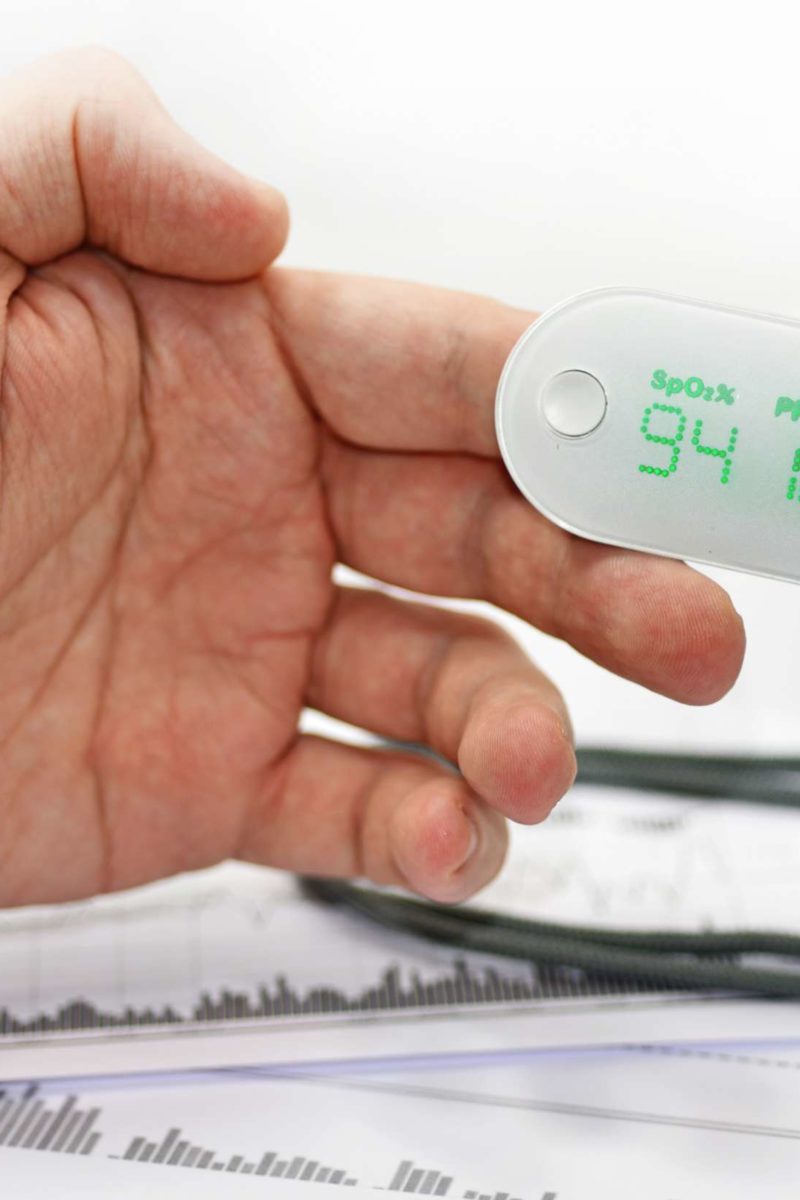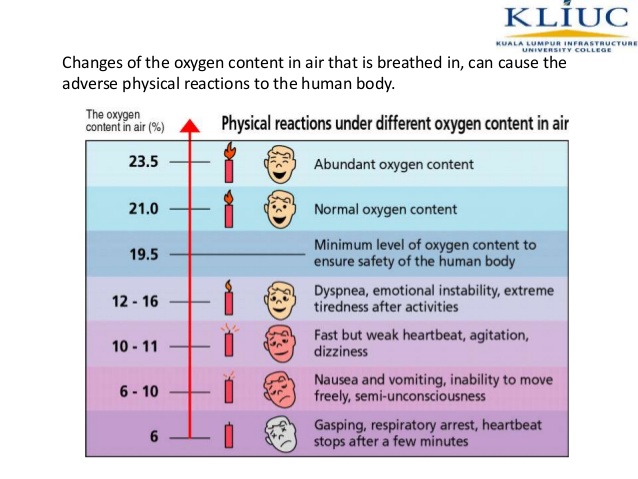Normal and Abnormal Blood Oxygen Levels During Sleep Low sleep apnea oxygen level is a sign that your treatment for sleep apnea is not effective. Patients with breathing problems during sleep (sleep apnea, COPD) often have low oxygen levels in their blood. In the absence of any of the above, a fluctuating oxygen saturation level between 92–97 shouldn't be a cause for alarm, so long as it doesn't fall below 88% (the W. O standard cut off). The event of a consistent SpO2 of below 90 is generally indicative of a chronic obstructive lung disease and you should seek medical help immediately. Oxygen is the third most abundant chemical element in the universe, after hydrogen and helium. About 0.9% of the Sun's mass is oxygen. Oxygen constitutes 49.2% of the Earth's crust by mass as part of oxide compounds such as silicon dioxide and is the most abundant element by mass in the Earth's crust. Study objective: To determine oxyhemoglobin saturation (O2 Sat) in healthy humans. Design: Retrospective review of all-night pulse oximetry data, carefully examined to exclude periods of motion artifact.
One of the most popular questions which people have is how low can their oxygen level go before they die. There are various reasons behind asking the question. One of the reasons is before going mountain climbing or even swimming. An understanding of how low a person’s oxygen level can go will allow them to make the right decisions to stay alive and healthy.
As mentioned in previous articles sleep apnea is a serious condition which many people suffer from. Knowing about the oxygen level can help people with the condition.
What is Sleep Apnea?
It is a critical sleep disorder where people experience their breathing stopping and starting repeatedly. You might even have sleep apnea if you snore loudly and experience exhaustion after a good night’s sleep. The most common type of sleep apnea occurs when the throat muscles relax, known as obstructive sleep apnea.
Breathing properly is vital and long-term sleep disorders have serious health implications such as an increase in the incidence of heart problems, diabetes, and high blood pressure.
What is the normal and low oxygen level?
Low oxygen level indicates that the treatment you are undergoing for sleep apnea isn’t effective. Low oxygen levels in the blood are something that patients with sleep apnea suffer from. A normal blood oxygen level should be anywhere between 94 percent and 98 percent.
Oxygen level drops to 80 percent or less due to not breathing for 30 seconds or more when sleeping. Anyone that has an oxygen level under 90 percent requires intervention as it is dangerously low for the body. The brain only has the ability to survive for up to 4 minutes if oxygen gets completely cut off.
Oxygen Levels during Sleep Apnea

The upper airway muscle tone during sleep tends to be narrow which makes it collapse temporarily in sleep apnea patients. As this happens, the breathing would stop along with a drop in blood oxygen levels. You will feel tired during sleep since the oxygen levels would drop, contributing to restless sleep. The carbon dioxide levels would start to build up as the oxygen levels drop. Sleepiness, fatigue and morning headaches would be felt during the day due to this.

How does Oxygen Levels Due to Sleep Apnea Impact the Body?
If the blood oxygen levels drops below 92 percent, it is considered to be abnormal. However, what is more, important to be considered is the amount of time spent with the abnormal oxygen levels and the number of desaturations. But, if the desaturated levels below 92 percent are experienced just once or twice within a 7 hour sleeping period and if it lasted for just a few seconds, then it is nothing to worry about. Experiencing long low oxygen levels, on the other hand, will seriously affect your health. It leads to the following.
- Fluid buildup in your body
- Heart rhythm problem
- Stroke
- Heart Failure
- Increasing pressure on your heart’s right side
Average Blood Oxygen Levels By Age
How to monitor your Blood Oxygen Levels?
Normal Oximeter Reading By Age
Now, normally it will your doctor who will discover that your blood oxygen levels are low or under the minimum 90 percent requirement. It is probably due to the oxygen levels dropping in the night. Sleep apnea is the cause of this or any other respiratory disorder such as UARS. Overnight monitoring would be recommended by the doctor for your oxygen levels using the oximeter that would be attached to the finger. Oxygen levels will be recorded by this device along with the pulse rate as you sleep.

It is important to follow up with the sleep study to ensure that the right actions are taken. Your short term memory and other cognitive functions would be damaged, as well as a heart attack and stroke in your sleep would occur with a continued drop in oxygen levels.

How to treat Sleep Apnea Oxygen Level?
Anyone that has sleep apnea would use a CPAP machine to be treated. Oxygen levels will improve and return to normal levels if apnea episodes disappear. Sleep apnea is a serious condition with severe consequences, it is vital to get treated as early as possible.
